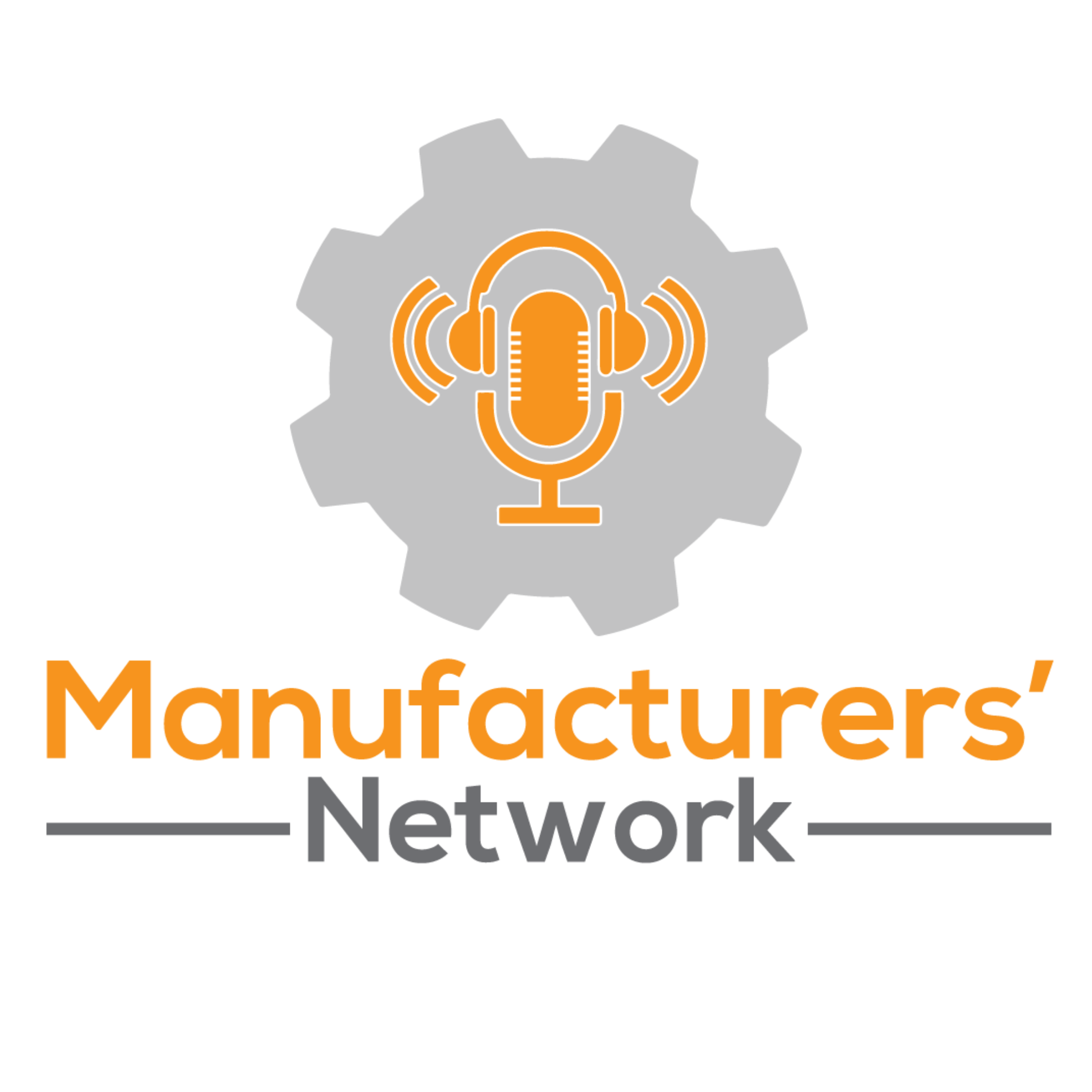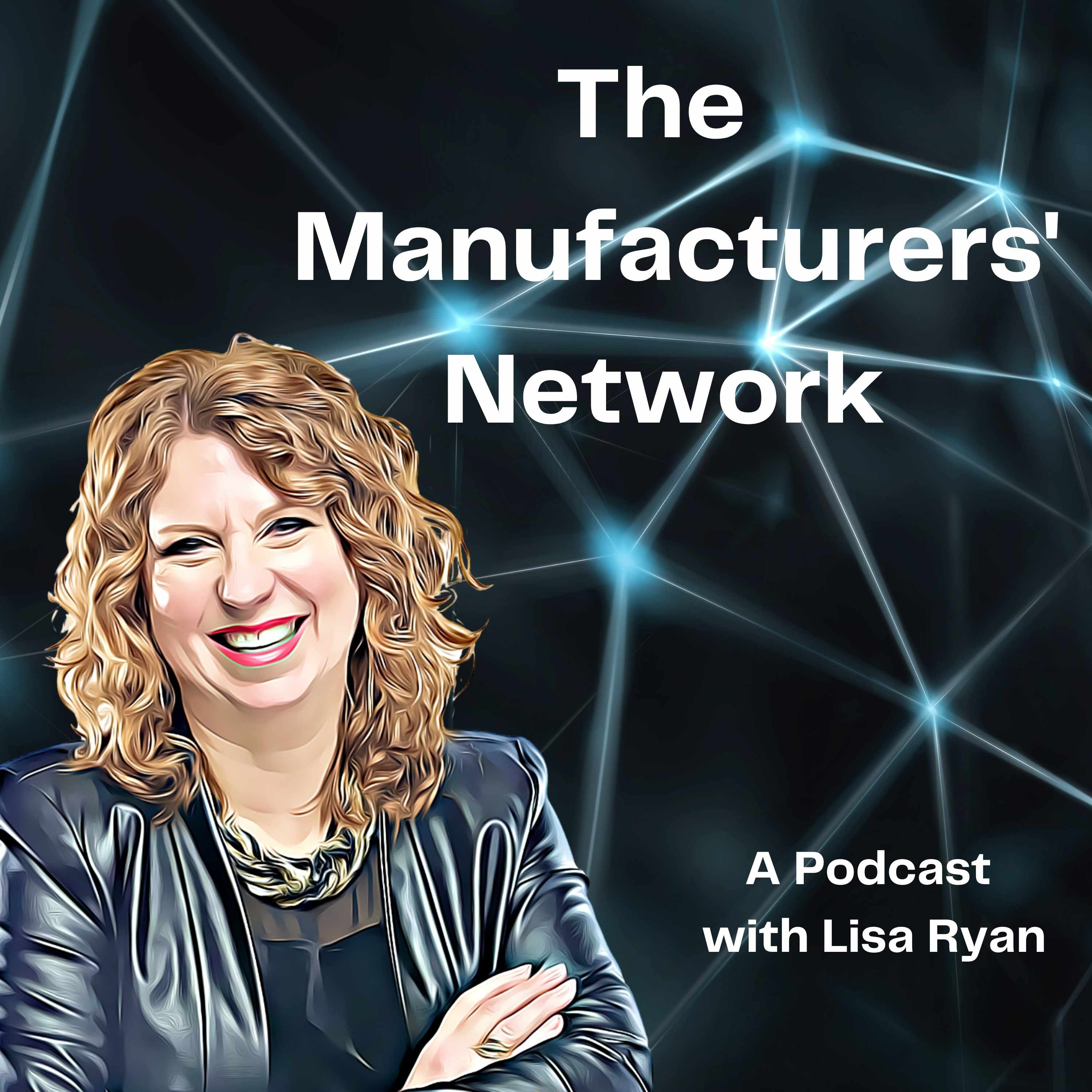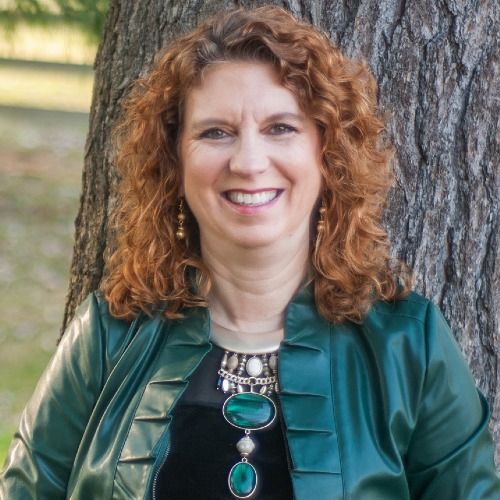Collaborate with Your Competitors and Watch Your Business Grow with Mauricio Barboza
Contact Mauricio Barboza:
Email: mauricio@joncoind.com
LinkedIn: https://www.linkedin.com/in/mauricio-barboza-a6bb9558/
Lisa Ryan: Hey. It's Lisa Ryan. Welcome to the Manufacturers' Network podcast. I'm really excited to introduce you to Mauricio Barboza today. Mauricio was born in San Jose, Costa Rica. He studied architecture at the University in Costa Rica and graduated with honors majoring in emergent manufacturing technologies.
Mauricio is currently the director of business development at Jonco industries. He is responsible for identifying new markets and emerging trends, developing new business opportunities and long-standing partnerships, and building and expanding their client base to drive forward their company's profitable growth ultimately. These are fancy words to say he helps their business grow. Mauricio, welcome to the show.
Mauricio Barboza: Thank you, Lisa, glad to be here.
Lisa Ryan: So share with us a little bit about your background, and really what led you to Jonco, and doing the things that you're doing now.
Mauricio Barboza: My background is actually in architecture. I went to architecture school, and I got a major in emerging technologies. I've always been passionate about the manufacturing industry about business development, product development, and, more so, Creative Problem Solving. That is what led me to Jonco. Jonco is a problem solver. Jonco industries is a multi-industry manufacturing and packaging company in Milwaukee.
We have a wide range of capabilities from fulfilling from powder filling and chemical filling. We have a large format digital printing. We do a lot of cutting - whether CNC, and computer-controlled, and water jet, and whatnot. One of the fascinating things about Jonco that I was attracted to is adapting to change and how they have grown as a business.
As a matter of fact, one of the most recent things right now, and because of the pandemic, is we're taking on a shift. We're allocating one for facilities, one of our warehouse facilities, to develop a fulfillment center. There's a major need for fulfillment centers right now because everything's everything going on with the pandemic. Everybody wants everything right away, so the need for a fulfillment center is out there.
We're taking that shift, and that is one of what attracted me to Jonco.
Lisa Ryan: In our conversations leading up to the podcast, we talked a lot about the pandemic and some of the pivots that you made in making one product, and then just overnight changing to something else, based on what the customers were looking for. So what did that look like before and after, and really how were you able to change so quickly?
Mauricio Barboza: One of the fascinating things about the manufacturing industry right now is that everything changed. It's not the same as before the pandemic. It's never going to be the same it's never going to go back.
The pandemic pushed the manufacturing industry to adapt and embrace technology. I love the fact that it pushed manufacturers and forward thinkers to embrace technology at a faster pace. When we talk about technology, there are really three big players out there.
One is automation. Automation has been a while for decades. The biggest difference right now with automation and how things are moving is that it has become accessible. It has become accessible to smaller industries - from small companies to mid-sized companies. Think of it as a car. When cars came out, they replaced the horse. It was a novelty. Now, everybody's got a car. Similar things are happening with automation. Automation is just becoming available. It's easier to use. The interface is user-friendly, so it's one of the fascinating things that is happening right now.
Another thing is that the digital transformation. Everything is shifting from paper and pen and all that traceability to digital to the Internet of Things. We're doing everything that we're doing on the computer, computer control, and how we monitor data and upgrade analytics from everything we can collect on the floor.
The third piece is collaboration. One of the things that endemic has taught us is that we all need a backup plan. What better way to do it than to collaborate with your colleagues. You understand their capabilities to see them not as competition but as a strategic partnership. That's been huge. Those are three things that we're trying to push within our company.
Lisa Ryan: So, give me an example of a collaboration that you had with somebody you may have thought, as the competitor in the past, and you were able to use the pandemic and partner with that person. What did that look like?
Mauricio Barboza: I'll give you two examples. When I talked about collaboration, there are two venues: one is with companies doing similar things that you are, and the other is with universities, and using them as research and development, coming up with new things, and innovation.
One example is in the sewing industry. We were affected, by a pandemic, because it is labor intense. When a team is out, what do you do? We've reached out to all Contracts owners or their contract manufacturing companies and build that synergy. When we're short, we reach out to them.
At the end of the day, we're trying to serve the end-user customer. We keep our customers happy, whether we do it ourselves or we do it with partners. They're going to stick with us, and we're going to help each other out.
In similar ways, when our competitors or strategic partners are at full capacity or one of their teams was out with Covid, they reach out to us and say, "Hey, can you guys tackle this right now?" Absolutely - if it was within our abilities.
Lisa Ryan: That's such an important lesson for other manufacturers to pay attention to. There is enough business for everybody. We might not be thinking that right now because of just what this last year has led to, but you think about the future in those relationships those other companies helped you. You helped those other companies who are more likely to refer business to in the future because they've developed that relationship with you. Kudos to you for being able to step out and create those relationships for happening.
Mauricio Barboza: Absolutely, and you're right. There's enough business for everyone. The most important thing that has come out of this is that a strategic partnership is looking out for each other. To try to grow together - learning from each other's mistakes and learning from everything-we have to succeed. It's been a great learning curve. It's been a great challenging time, but it has really benefited the industry.
Lisa Ryan: What about the employees that you have working for you? One day you're making packaging, the next day you're making masks or seals, or you're just completely changing the product overnight. How were how did that work with your team and get the buy-in for that to happen?
Mauricio Barboza: I feel that that staying fresh. It is well-liked by our people because it's not the same thing, every day, every week, every month. It keeps changing, so is that continuous growth is that the continuous learning process doing things differently. It's not every hour. Everything changes so often that it keeps us fresh in a way. That's very attractive to us for a lot of the people that work here.
Lisa Ryan: It sounds like it's built into your culture. You're naturally able to make that shift when everything changes overnight. That was your business model, to begin with, because of everything that you do there.
Mauricio Barboza: Adapting to change is at the core of our business. That's what we grow with the challenges and opportunities. When companies don't want to do something, we see that as an opportunity to help them out and grow a business and that division. I feel that our culture sees that. We champion the good stuff that is coming out of all those changes. We try to keep a good attitude.
Lisa Ryan: What are some examples of working with your team - of acknowledging them, of sharing that good news, and positivity? How are you doing that in the plant?
Mauricio Barboza: Well, we set up attainable goals, and we give teams tasks, and if they accomplish the task, we reward them. We have a program where if you go beyond what we have asked, we have this room that will collect things that we have gathered from other companies that you went to that room, and you can pick something. It keeps them motivated. We want to express our appreciation for them because we felt people were everything. As much as we've tried to embrace technology and automation, we really need to take care of people.
Lisa Ryan: That's a great idea when you have things given to you from other companies because it's a really inexpensive way to reward the people who are working with you. Are there any other programs or things you're doing to keep that motivation going and keep people inspired?
Mauricio Barboza: Continuous growth is one of the reasons they join Junko industries. They're not going to stay at the same place for a long time. We're going to train them. We help them grow. They can grow within the company at a swift pace because of what we do, which is very encouraging. That keeps everybody motivated. We have a set of tests. If you exceed those tests, you will get rewarded, whether it's an object, or PTO, anything that will keep them excited.
Lisa Ryan: That's a great way of expanding the skill base of your employees. The ones that are looking for tasks, you can pinpoint them as your future leaders. They can grow with the company because it sounds like you do many that promoting from within.
Mauricio Barboza: Sure, absolutely, and it is exciting. I mean, if you think about it,
they're always asking us what's next. One of the newest things right now is this fulfillment Center that we're in the process of building a 300,000 square foot facility. We're turning into a fulfillment center with state-of-the-art software, and technology, and whatnot. It is exciting that they know they're working for a company that is willing to grow at the industry's pace, if not faster. Trying to take care of the problems is current, and we do our best at it. We tell ourselves that we are experts at becoming experts, and that's how we have done business since 1988 since we've been in business.
Lisa Ryan: One of the other things that we talked about was that you have about 60% of your employees are full-time, and then you also use a lot of temporary workers. What are some of the ways that you manage that, too, to keep basically everybody happy and keep that turnover rate down?
Mauricio Barboza: That's been a challenge with corporate. That's what has been one of the biggest challenges for us. Before covid, we could ramp a team in a matter of a week or weeks because of the Labor-intensive projects we have done in the past. Now that's different, and that's why we're shifting towards more automated stuff.
We push all of our employees to think of the company as part of theirs, grow within the company, and support all the operations we do and bring in.
Lisa Ryan: It sounds like that's probably what one of the things that are keeping you up at night is dealing with that the change, the automation, and bringing in new people. What else is keeping you up at night?
Mauricio Barboza: Well, I think the pandemic has told the industry that we need a backup plan. We can no longer be in business without having a backup plan. We need to adapt to everything that is shifting forward. If you are one of those companies or individual thinking that are just waiting for the storm to pass, waiting for this to be over so we can go back to normal, that's not going to happen. You're going to be left behind.
One of the things keeping us up at night is having that backup. Automation is part of it. New technologies are part of it, listening to the industry, fulfillment centers, and move forward with the industry.
Lisa Ryan: From a networking standpoint, in getting together with other manufacturing colleagues, what are some of the things you would like to learn from them? And what are some of the things the ideas or strategies you would be willing to share with your manufacturing colleagues?
Mauricio Barboza: Sure, well, I will be willing to share all the ways that we have learned that failed and succeeded and how to learn about ways that they have accomplished. What have you done? What have you done wrong? What did you learn in the process? Because failures are actually good, failures help you grow. Learning from those failures so important as a company. If you can learn that from a different company making their own mistakes, it's even better.
I'm willing to share our stories, how we have grown as a company, and our challenges. I would love to hear from similar companies.
Lisa Ryan: The pandemic has speeded up a lot of the technology. It's put us light years ahead of where we would have been had it not been for the pandemic.
Mauricio Barboza: I see that pandemic as a technology accelerator of the century. I mean, really speed up the process. It was going in that direction. It happened faster now.
Lisa Ryan: If you were thinking about all the things that you've done in this last year, what would be your biggest piece of advice or strategy that's worked best for you, that might help someone else listening to this podcast today?
Mauricio Barboza: Sure, keep up with what's going on in the world again. Bring him back. Don't get used to waiting for the storm to pass. Learn how to dance in the rain. We need to learn how to dance under the worst circumstances because that's what helps us grow. If you're one of those waiting for everything to pass, are you going to be left behind?
Lisa Ryan: Mauricio, it has been an absolute pleasure to have you on the show today. What would be the best way if somebody did want to connect with you what's the best way for them to do that?
Mauricio Barboza: sure, they can do it via email, whether my personal email or Jonco industries and to leave you my email addresses.
Lisa Ryan: I'll put that in the show notes so that people can click. Thank you so much for being on the show today it's been great talking to you.
Mauricio Barboza: Thank you, Lisa. I appreciate it.
Lisa Ryan: I'm Lisa Ryan, and this is the Manufacturers' Network podcast. See you next time.


